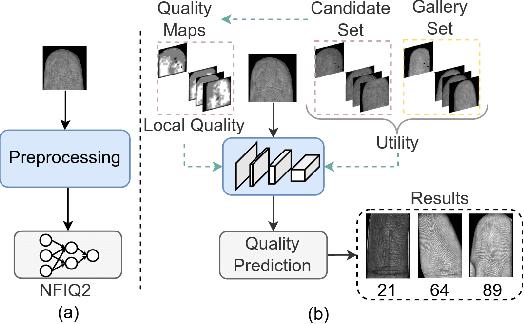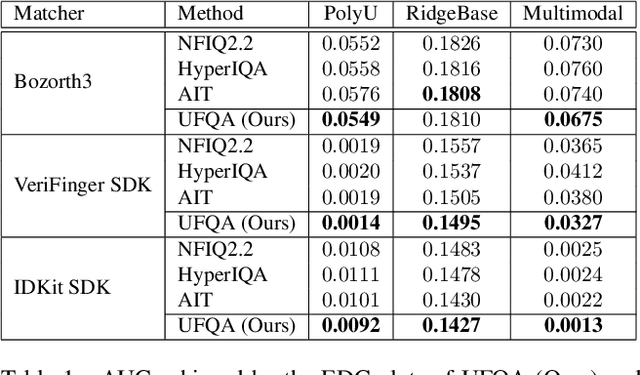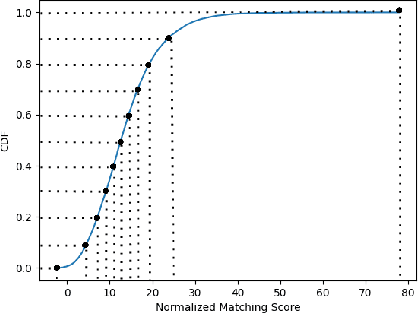UFQA: Utility guided Fingerphoto Quality Assessment
Paper and Code
Jul 15, 2024



Quality assessment of fingerprints captured using digital cameras and smartphones, also called fingerphotos, is a challenging problem in biometric recognition systems. As contactless biometric modalities are gaining more attention, their reliability should also be improved. Many factors, such as illumination, image contrast, camera angle, etc., in fingerphoto acquisition introduce various types of distortion that may render the samples useless. Current quality estimation methods developed for fingerprints collected using contact-based sensors are inadequate for fingerphotos. We propose Utility guided Fingerphoto Quality Assessment (UFQA), a self-supervised dual encoder framework to learn meaningful feature representations to assess fingerphoto quality. A quality prediction model is trained to assess fingerphoto quality with additional supervision of quality maps. The quality metric is a predictor of the utility of fingerphotos in matching scenarios. Therefore, we use a holistic approach by including fingerphoto utility and local quality when labeling the training data. Experimental results verify that our approach performs better than the widely used fingerprint quality metric NFIQ2.2 and state-of-the-art image quality assessment algorithms on multiple publicly available fingerphoto datasets.
 Add to Chrome
Add to Chrome Add to Firefox
Add to Firefox Add to Edge
Add to Edge